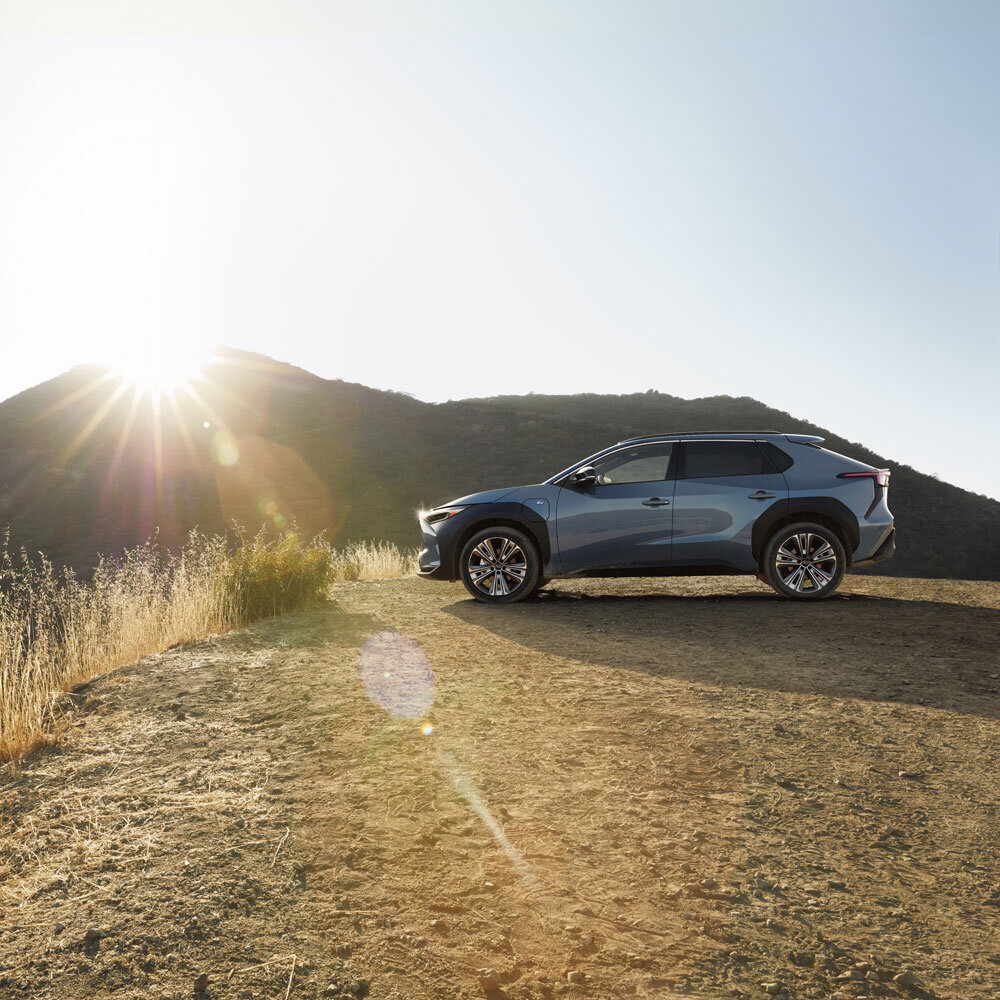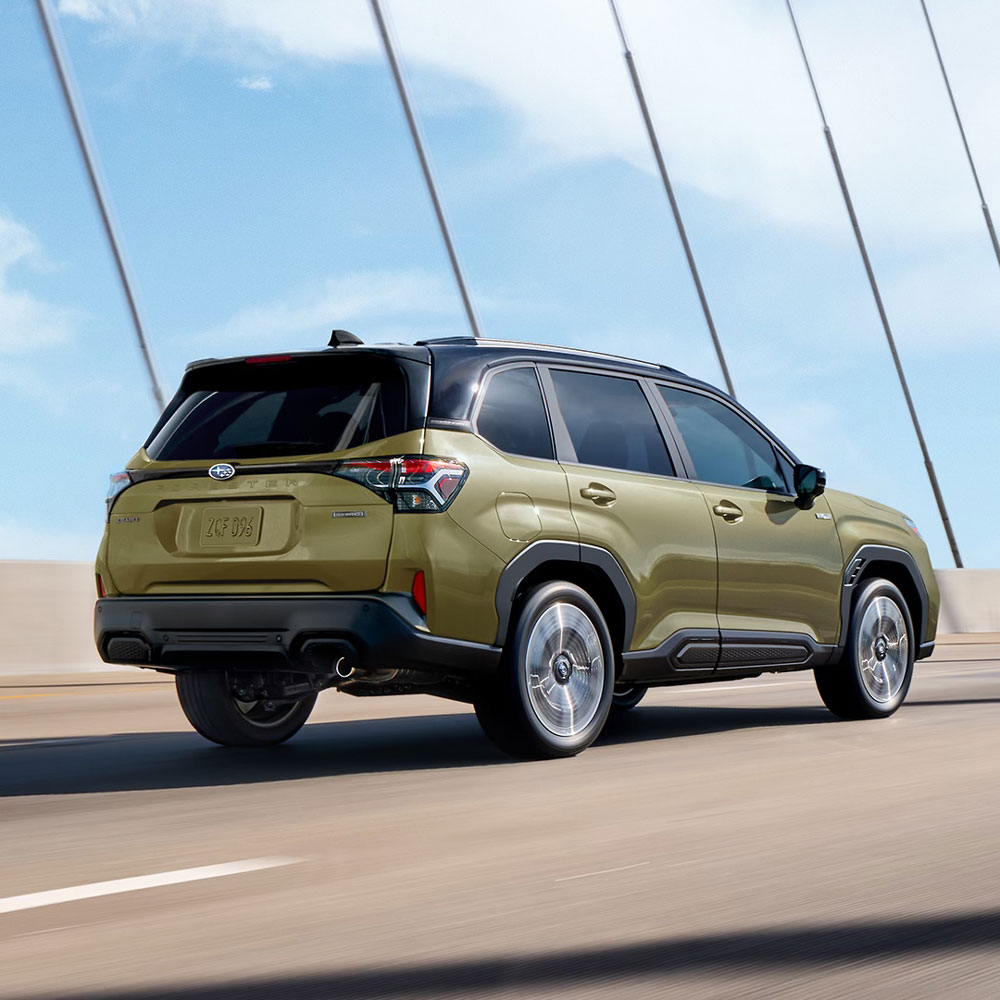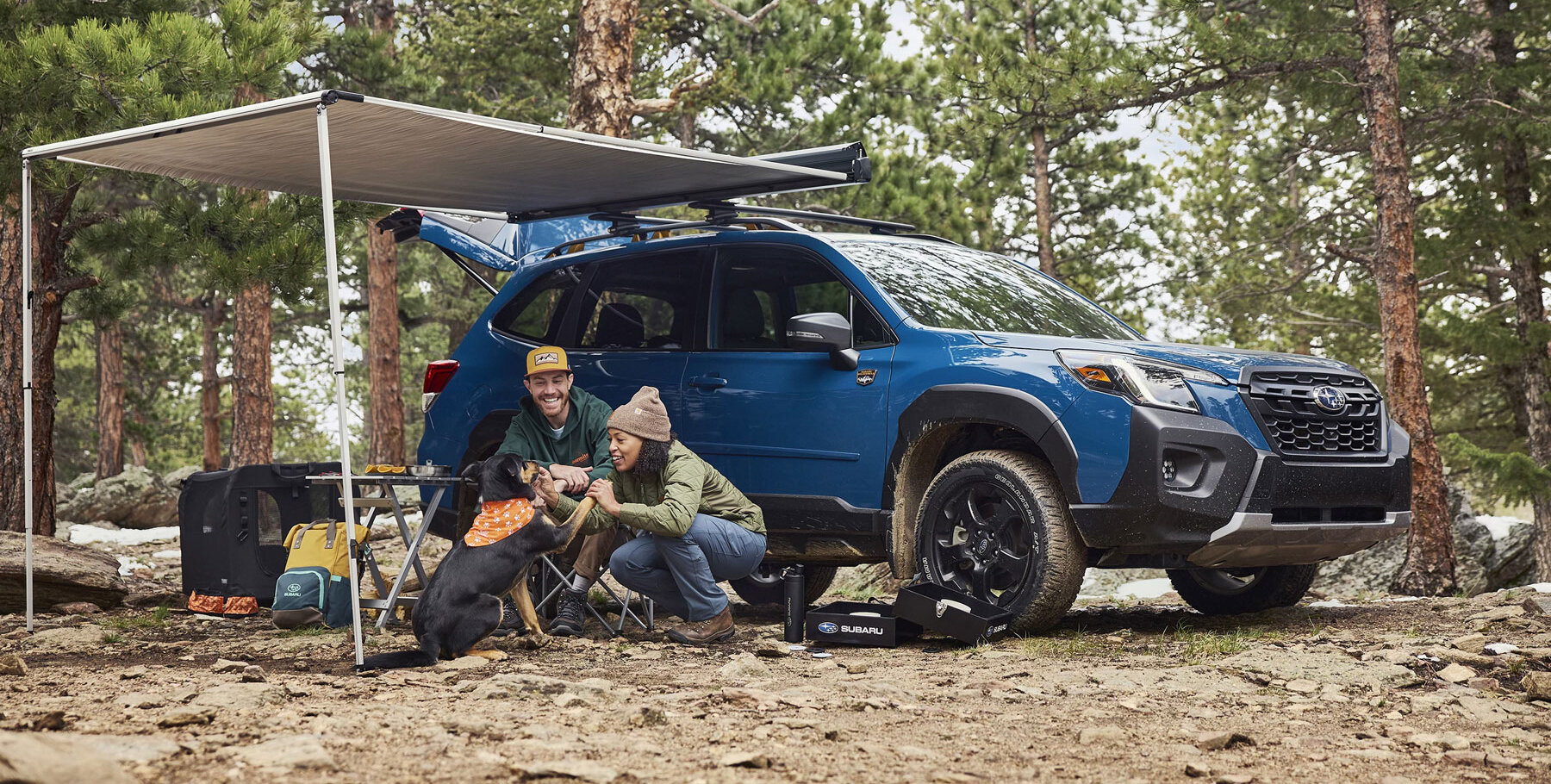970,000 pounds of recycled content utilized in carpeted floor mats, with plans to expand this initiative to more models in the future
Vehicle Sustainability
Sustainability is a key priority for Subaru at every turn. We reduce waste by incorporating post-consumer recycled materials in products like floor mats and cargo trays while reducing our environmental impact through responsible manufacturing and logistics.

Innovating our Fleet
As we focus on the future of transportation, Subaru is actively expanding our vehicle lineup to include a range of electric and hybrid vehicles that provide both performance and sustainability.
Electric Vehicles
This growth reflects our continued commitment to the environment and innovation, starting with the Subaru Solterra, our first all-electric vehicle (EV). Built on our next-generation e-Subaru Global Platform, the Solterra combines our signature Symmetrical All-Wheel Drive with zero-emissions technology, offering a new way to experience the Subaru brand.
With growing access to charging stations and the convenience of home charging, Subaru EVs are designed to meet the needs of today’s drivers while protecting the environment.
Learn more about our EV lineup and the benefits of a zero-emissions vehicle

Hybrid Vehicles
Subaru continues to develop hybrid vehicles engineered with a blend of eco-conscious engineering and Subaru’s renowned performance. Our 2023 Crosstrek Hybrid combines a gasoline engine with an electric motor to reduce emissions, increase fuel efficiency, and deliver a smoother, more responsive drive.
Looking ahead, the upcoming 2025 Forester Hybrid will mark our return to the hybrid crossover SUV market, merging cutting-edge hybrid technology with the versatility, reliability, and rugged performance of its gasoline-powered counterpart.
Learn more about Subaru hybrids and our approach to sustainable driving
Life Cycle Assessments
Through Life Cycle Assessments (LCA)*, we evaluate the environmental impact of our products from production to end-of-life, identifying opportunities for greater sustainability in every stage.
Subaru Corporation (SBR) conducts Life Cycle Assessments to evaluate CO2 emissions during the entire life cycle of our vehicles, allowing us to quantify the environmental impact. By considering decarbonization needs from the design stage, we proactively develop products that reduce emissions, improve resource efficiency, and support our environmental goals.
*LCA is an environmental impact assessment method that comprehensively evaluates environmental load at every stage of the life cycle of products and services from raw material procurement to production, use, disposal, and recycling. For SBR, assessments are for cars built for the Japanese market.
Learn more about Subaru’s approach to mitigating climate change
Low-Emissions Transport
Alongside our network of third-party logistics providers, we are committed to minimizing emissions throughout the transportation of our vehicles to distribution centers. In 2024, we continued to reduce transport-related emissions by 50–80%, depending on the product. We prioritize transportation via rail, reducing CO2 emissions, with 89% of Subaru’s HUB and Spoke Transfer network currently serviced by rail.
To further our sustainable transport goals, we’ve partnered with a shipping carrier that uses liquified natural gas instead of ultra-low sulfur diesel or heavy fuel oil. This change has resulted in major emissions reductions in 2024, including:
25% reduction in CO2
95% reduction in nitrogen oxides
100% reduction in sulfur oxides
100% reduction in particulate matter
Drivetrain Remanufacturing
We embrace remanufacturing as a key part of sustainable production. By remanufacturing select vehicle parts, we help extend the life cycle of materials, reduce waste, and lower costs for our customers. Our remanufacturing process ensures that both new and recycled parts are thoroughly inspected and updated, with every seal and gasket replaced to meet the same high standards as the original Genuine Subaru Parts installed at the factory. This commitment supports a cleaner environment while delivering quality and reliability.
2 million pounds extended life cycle in 2024
6,000 metric tons CO2 greenhouse gas saved in 2024
6,000 cubic yards landfill space saved in 2024
8 million kilowatt-hour energy saved in 2024
28,000 barrels of oil saved in 2024

